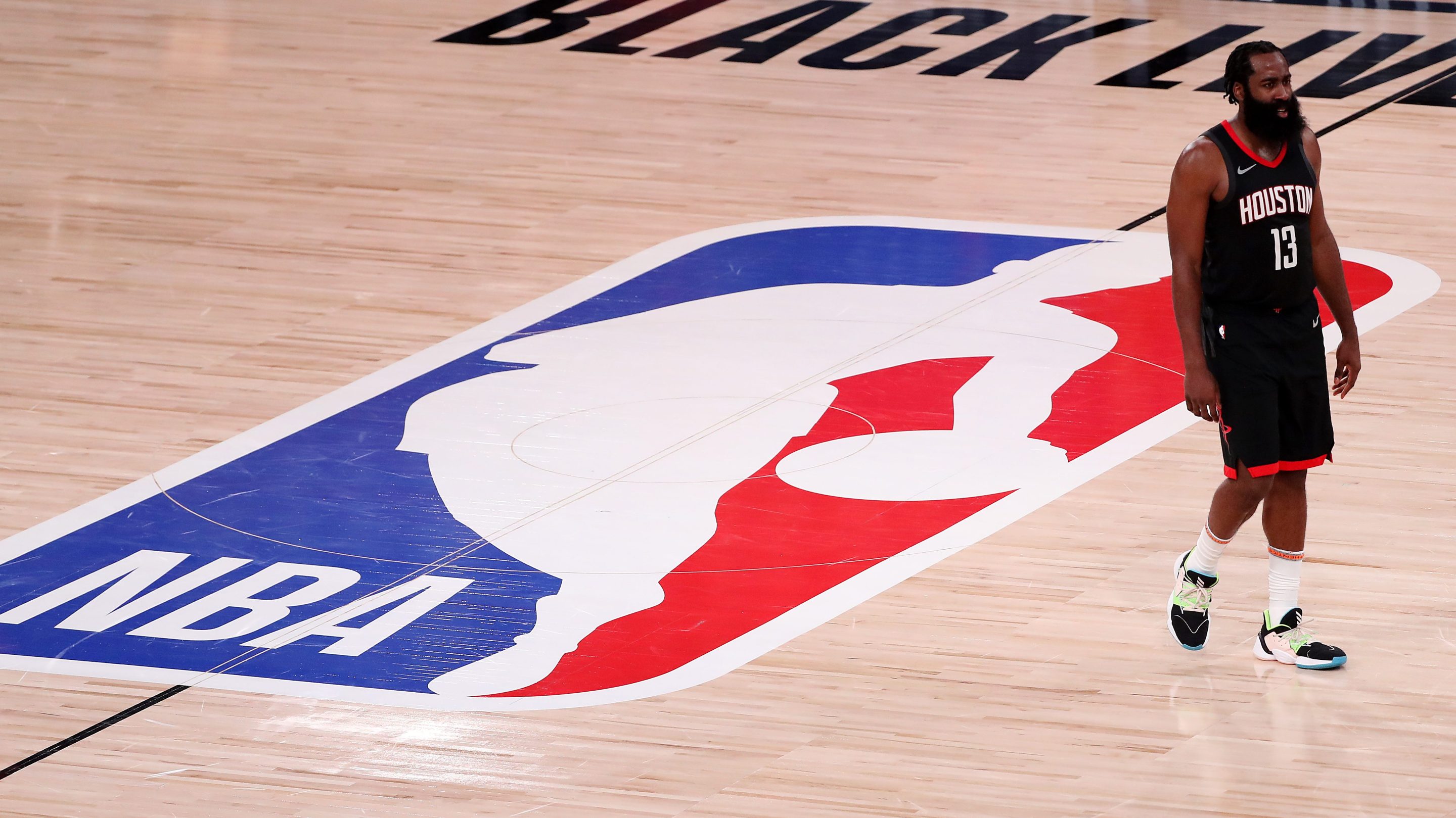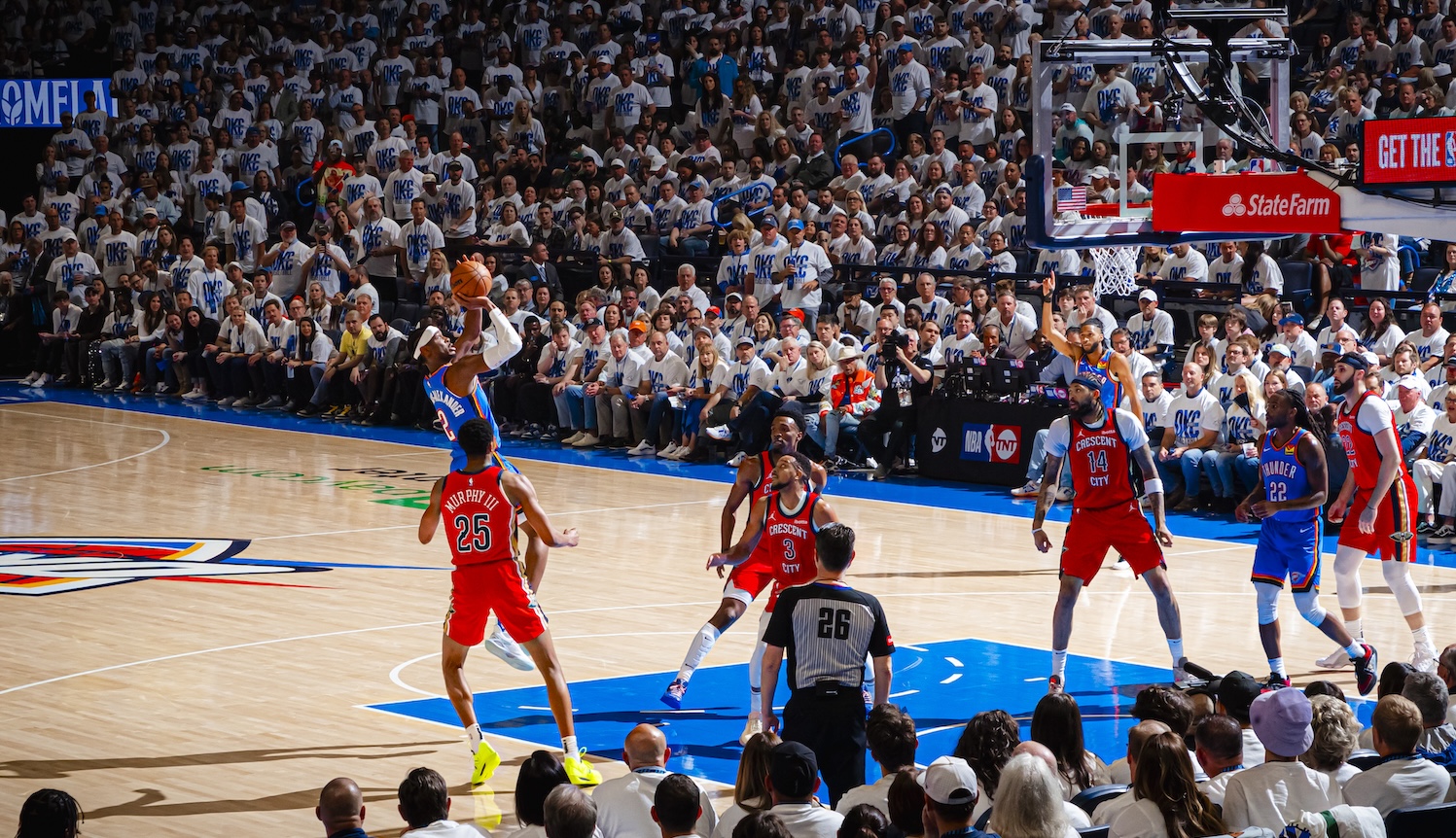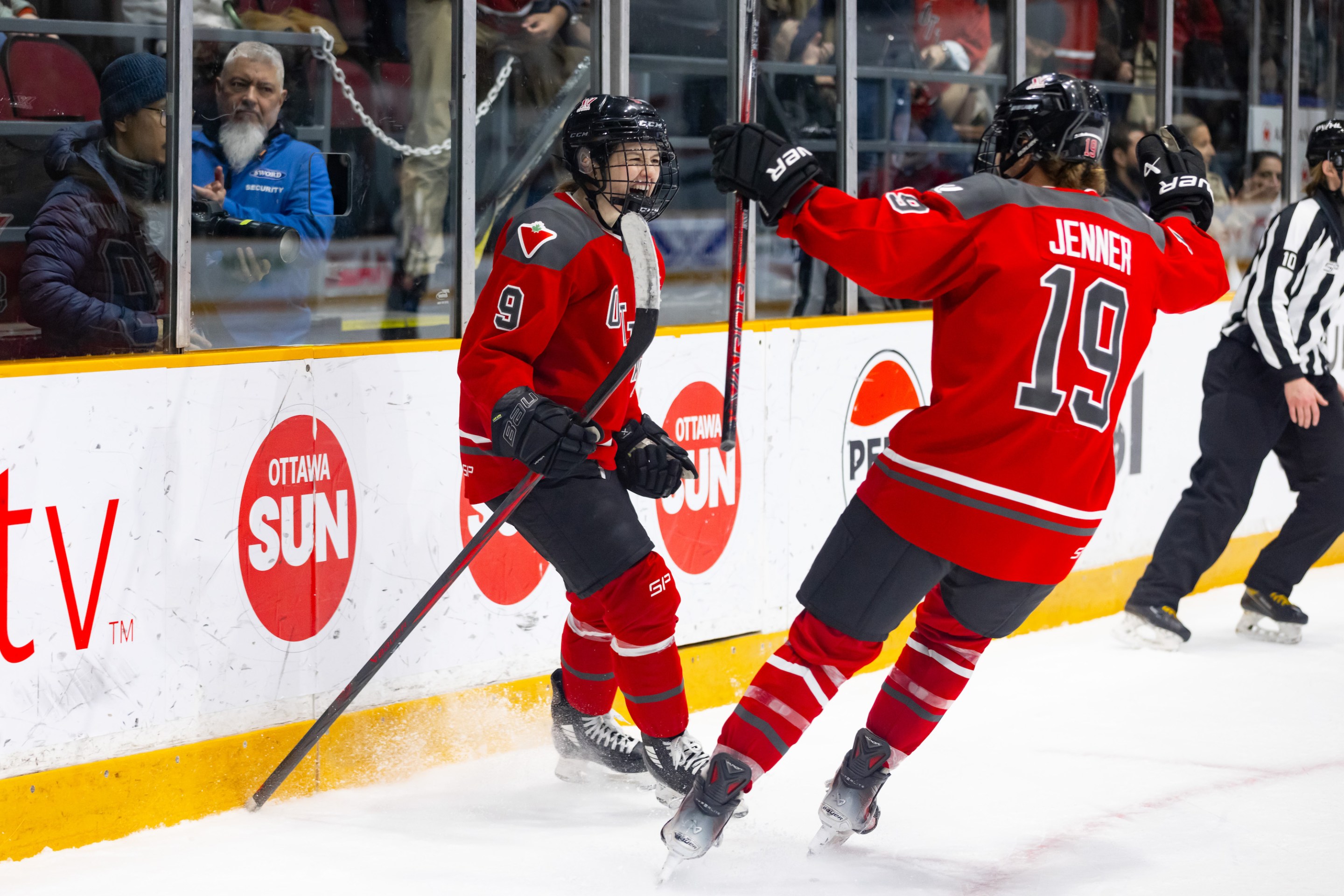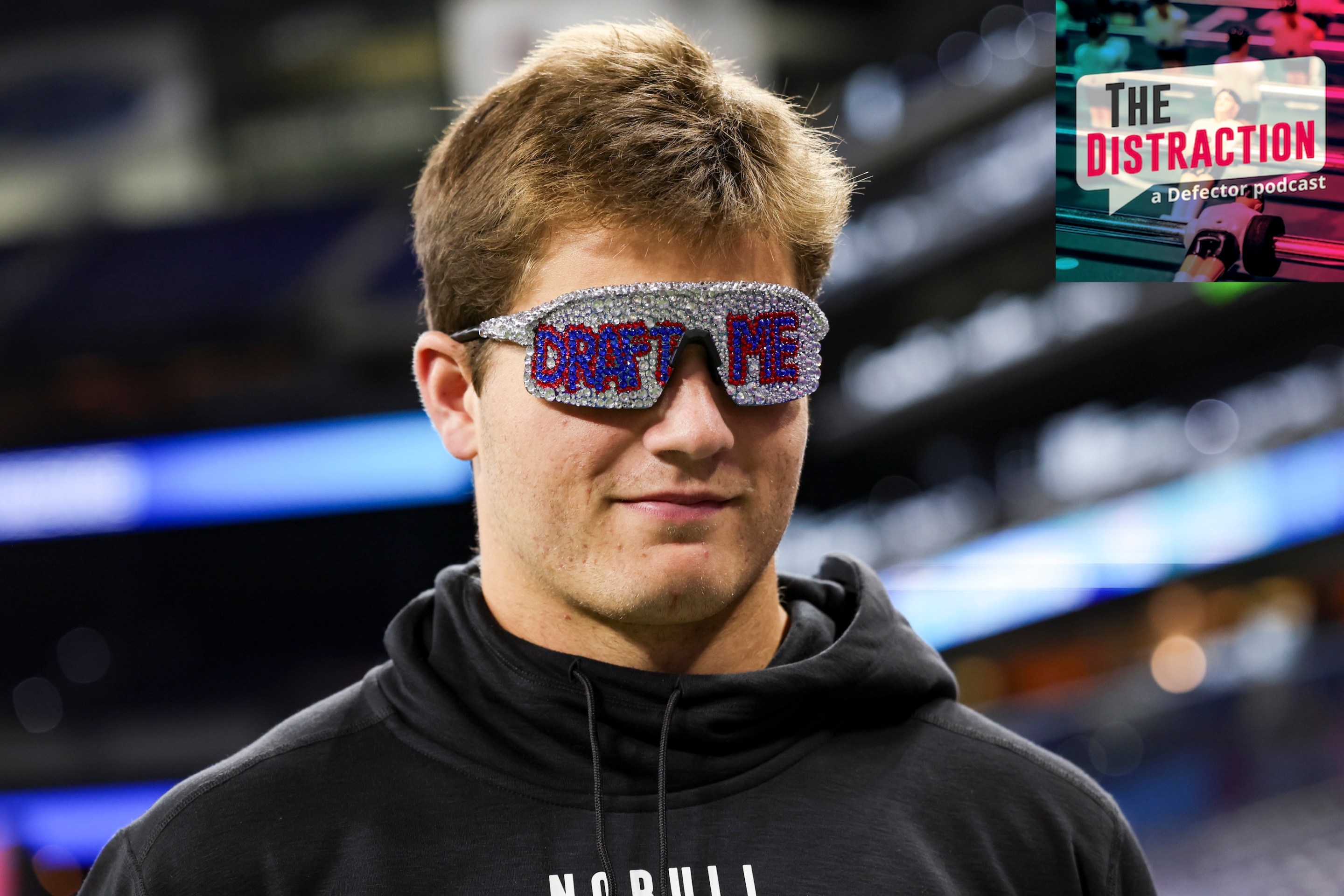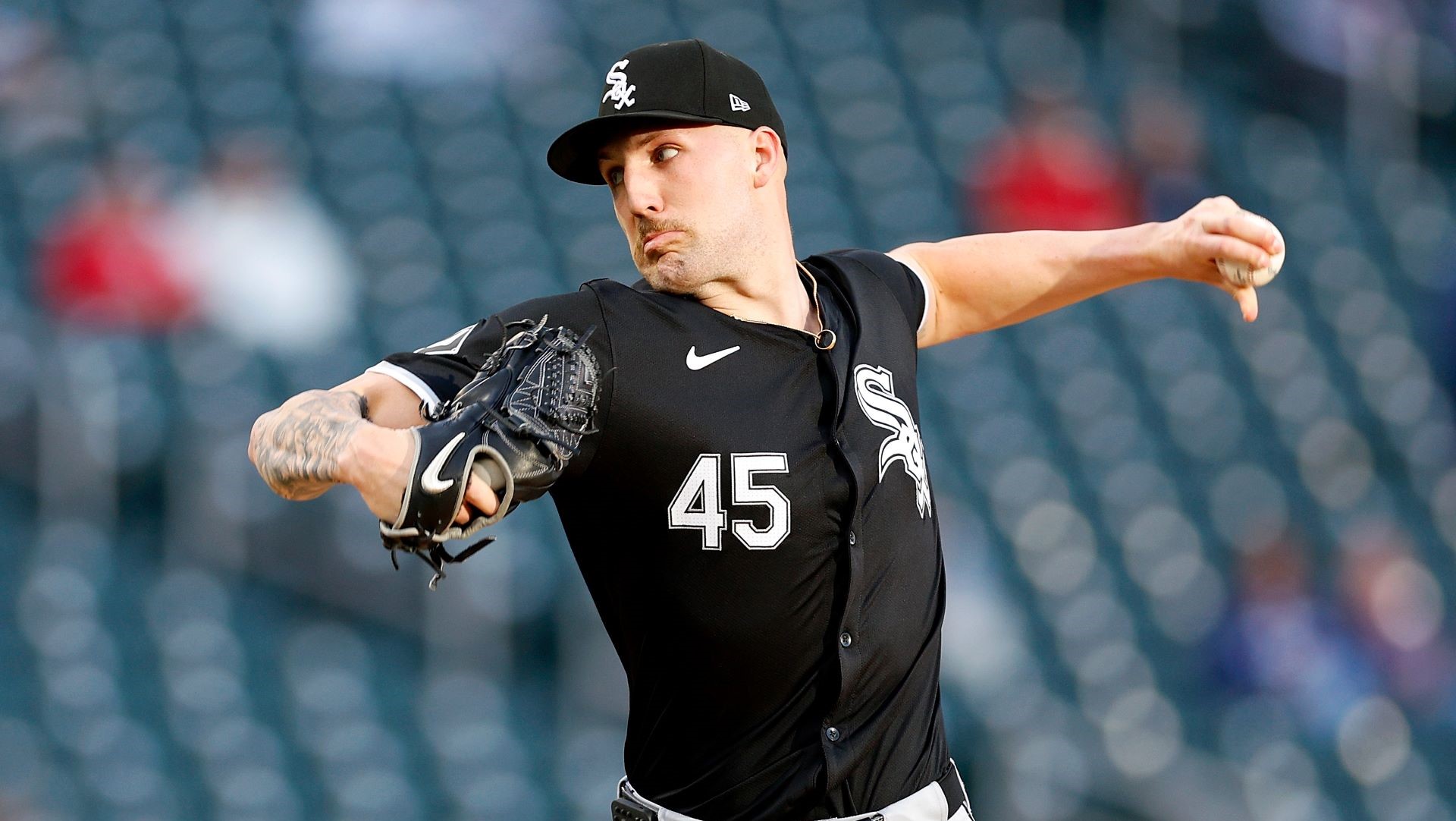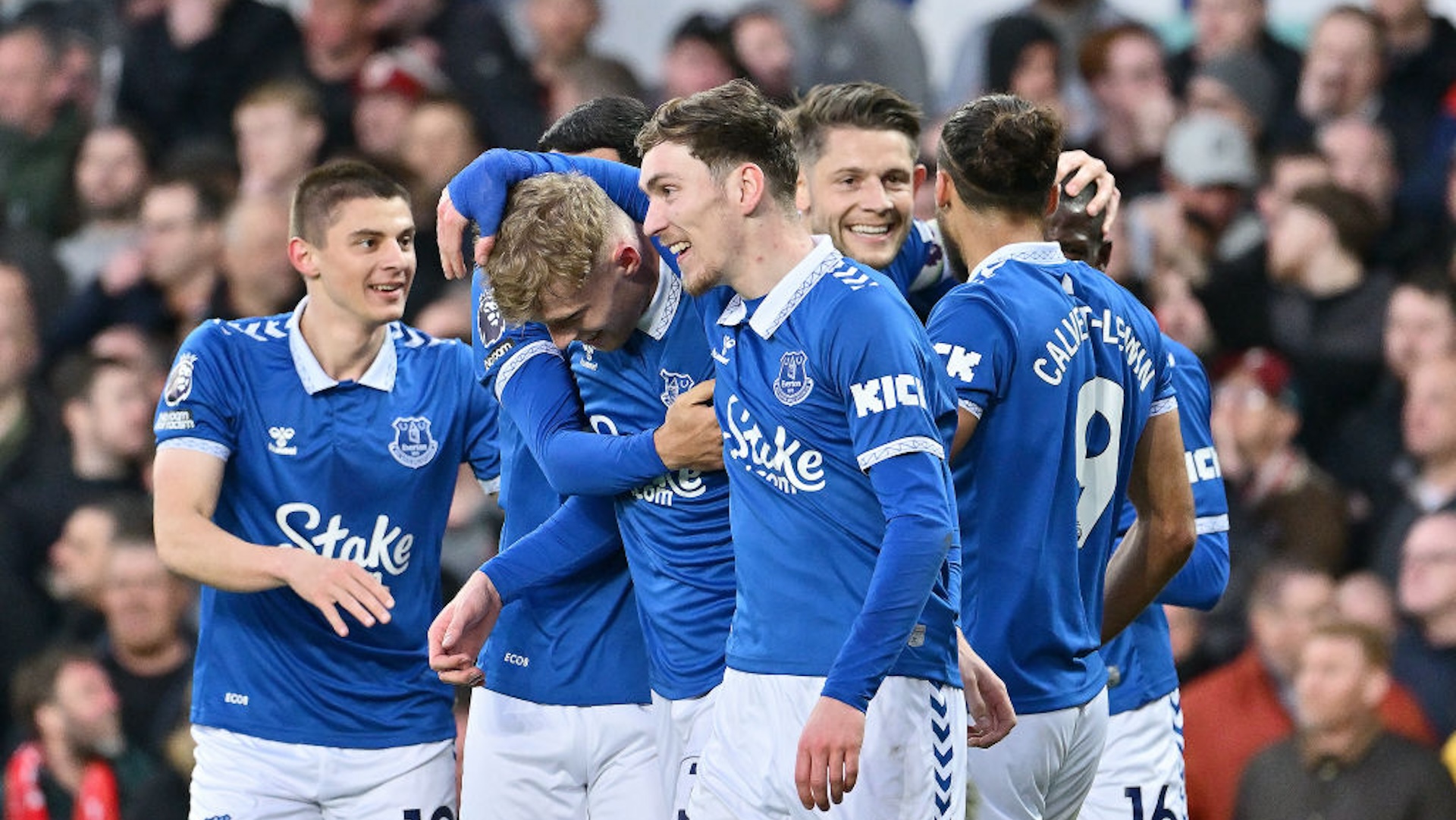James Harden Being A Prick Is Not An Existential Threat To The NBA
10:13 AM EST on December 10, 2020
By now you've likely heard something about the James Harden Situation. In brief: According to all reports, Harden wants out of Houston, where the Rockets seem to have entered, at the very least, a period of diminished near- and medium-term ambitions, if not a total rebuild. Almost certainly relatedly, he skipped the opening of the team's training camp over this past weekend, apparently in favor of being abundantly spotted and photographed at various nightclubs and/or celebrity birthday parties.
I suppose it goes without saying that he was not wearing a mask or practicing social distancing at any of those, which put him askance of both responsible public-health practice and also, less significantly, the NBA's COVID-19 protocols. The picture, especially in light of the varyingly grumpy "I dunno, ask him"-type quotes from his coach and Houston teammates, appears to be of a guy who knows the Rockets don't want to trade him—it's to the organization's benefit to keep him around as lipstick on an increasingly porcine state of affairs, and it'll be near-impossible to get what fans or observers would consider an equal return from any of the small number of teams that could satisfy Harden's preference for immediate championship contention—and is trying to force his way out, pretty much by being as obnoxious a dickweed as he can be.
A bit of context, here. No small part of the reason why the Rockets are no longer the kind of team James Harden would want to play for is that the team's front office spent the past handful of years sacrificing long-term flexibility for the sake of building a team maximally tailored to Harden's abilities, preferences, and relationships. Few teams in league history, if any, have ever featured an on-court product so thoroughly customized to suit an individual player, from an offensive style over the past couple of seasons that amounted to everybody just standing and watching him freestyle, to making unfavorable and hugely expensive trades in order to replace teammates he didn't like (Chris Paul) with friends (Russell Westbrook). It just happens to be the case that none of this got the Rockets quite all the way to a championship when they were at their best, and now circumstances have changed. The owner is an over-leveraged fake-rich cheapskate; the skillful and savvy general manager who kept the team sustainably competitive for over a decade is gone; the new regime has already made the team definitively worse for the sake of restocking its draft assets. Some protracted period of shit-eating seems all but inevitable. If this sucks for James Harden, it also sucks at least as bad for however many of his Rockets teammates showed up to training camp over the weekend.
It's fine to read all of the above and arrive at the opinion that James Harden could do better than this; that there are modes of expression and methods of negotiation more forthright and responsible, more befitting Harden's stature, than going on a passive-aggressive Grand Instagram Tour of various deeply unnecessary superspreader party events while teammates hired expressly to facilitate his greatness are, like, doing wind sprints and shit. It's fine to find that you regard Harden as more of an asshole than you did a week ago. Frankly, I wrote all of the above while thinking that he is behaving an awful lot like the kind of intolerable spineless shithead who hopes a performance of being maximally annoying will substitute for an uncomfortable but necessary confrontation they're afraid to have; if I were one of his Rockets teammates I probably would want the team to just trade him the hell away so I didn't have to share a locker room with the type of heedless dude who is going to parties and clubs during the lowest depths of a pandemic that has killed over a quarter-million Americans.
But those are opinions, and not deeply informed ones, of James Harden, the person who probably sucks. They are not insights into a new labor peril facing the NBA today. This is an important distinction.
With that in mind, here are a couple of paragraphs from The Ringer's Rob Mahoney:
Harden’s trade request, when taken in context, is an attempt to extricate himself from a situation he designed. This isn’t in line with Jimmy Butler blowing up a Timberwolves practice and making a break for it after his contract negotiations with the team went awry; Butler was only a visitor in Minneapolis, a part of that franchise for all of 17 months. Even Anthony Davis, a long-term franchise player who gamed his way out of New Orleans, didn’t have the same opportunity to shape policy that Harden has. It wasn’t Davis’s call to trade for Tyreke Evans or give Omer Asik $58 million. What mistakes Davis made largely came on a more personal scale.Within the league’s current practices, it’s well within Harden’s rights to attempt to incite a trade and steer its outcome. A Hall of Fame player wants to contend but can’t. That want is entirely reasonable. But what, if anything, does a modern, empowered superstar owe to a team they helped build? If the answer is nothing at all, the league as a whole suffers for it. Essential role players like Tucker become pawns in a game that is beyond them, yet another way in which player empowerment (a misnomer from the start) prioritizes superstars at the expense of everyone else. Harden is a part of the NBA’s ruling class. Becoming more of a mercenary doesn’t change that, just as it doesn’t change the fallout he would leave behind.
A few key bullshit turns here leap out as indications that what you're reading is neither a sober analysis of labor issues nor a rigorously self-contained opinion about James Harden, the person, but rather an ideological work rooted in the belief that it's bad for professional athletes to have autonomy or self-determination. The handwringing over role players—P.J. Tucker only pawn in game of life—recalls the deeply dishonest moral panic over the fate of workaday players during baseball's PEDs hysteria. The assertion that superstar empowerment comes at a cost to all other players is fun as an attempt at grafting a thin facade of labor-forward politics on what's at heart an argument against worker emancipation, especially in the total absence of even a token effort at explaining exactly how superstar empowerment harms role players. (Why, if things keep heading in this direction, soon role players might find themselves ping-ponging between NBA cities according to the whims and career prerogatives of powerful decision-makers who are not accountable to them, for the first time in the history of sports.) And using the term "ruling class" to describe a guy presently attempting to pressure his employers into granting him a relocation is an incredible act of galaxy-braining.
But for my money, "modern, empowered superstar" and "within the league's current practices" are the key tells. For the 500 millionth time, no matter how often The Ringer claims otherwise, no matter how forcefully the imperatives of 21st century online publishing incentivize sweaty, bogus trendspotting, there is absolutely nothing new about the phenomenon of NBA stars attempting, against the resistance of ownership, to force trades to their preferred teams and locations. There is nothing remotely new about them doing it mid-contract. There is nothing remotely new about them either withholding or threatening to withhold themselves from their teams as a negotiating tactic. Wilt Chamberlain did it in 1968. Kareem Abdul-Jabbar did it in 1974. Friggin' B.J. Armstrong, not exactly a heavyweight in the sport, refused to report to the Toronto Raptors when they took him first in the 1995 expansion draft, and they eventually traded him to the Golden State Warriors, a destination he liked better. For as long as NBA players have not been able to just pull up stakes and go play wherever they want, there have been players using the leverage they had to shape their careers how they wanted. If anything, the trend is away from the kind of forceful approach that once had Chamberlain vowing to switch leagues altogether if he couldn't arrange a trade to Los Angeles.
It's true that Harden has received uncommon deference to his preferences in playing styles and teammates and, who knows, maybe practice schedules and uniform choices. But that is not a power he claimed for himself, by force; in absolutely every instance, it represents a trade-off the Rockets organization made, willfully, when it did not have to, for what its actual leaders saw as the desirable benefit of making James Harden happy and/or getting the absolute most out of his abilities. In that respect it is a very old phenomenon: a front office catering to a superstar player, lest he become discontented and decide to leave. You can have whatever opinion you have about whether this is good or bad; what you can't really credibly do is deny that it is at least as old as the advent of free agency.
More to the point, relative to the history of how things have been done in the NBA, this is a step in the right direction. Until anybody's ready to run basketball teams as worker-owned co-ops, the person who shoulders—by far, in Harden's case—the heaviest share of responsibility for a team's success or failure ought by definition to have an authoritative voice in how it will be assembled. You can argue, rightly, that James Harden may have put that authority to poor use. So did Ernie Grunfeld—but I don't recall any concern-trolling sportswriters wringing their hands over the dangers inherent to empowering basketball general managers as a class when he was trading lottery picks for Randy Foye and Mike Miller for the sake of scrounging up just enough illusory short-term competitiveness to con another contract extension out of a checked-out owner. It was enough to say, of Ernie Grunfeld, the person, "That guy sucks at his job." It was enough to say, of the Wizards organization, that they had entrusted decision-making authority to the wrong guy—and not to cast the entire advent of empowered front-office executives as some sort of tragic Pyrrhic victory, horrible, horrible freedom bestowed on a class of jolly apes who'd only misuse it to their own ruin.
For that matter, when the front-office architect who traded off all the Rockets' future assets for the sake of the immediate pursuit of a championship announced his own departure back in October, leaving behind a team in shambles and without any clear path forward, I do not recall anybody, anywhere, wondering what, if anything, a modern, empowered front office boss owes to a team he helped build, or carefully implying that a necessary corrective would aim for a balance between giving him executive power within the organization's basketball operations and also allowing him the freedom to go work somewhere else after years and years on the job. It was enough to know that he felt he was ready to move on—and didn't need anybody to agree to trade him to another workplace. You could feel he'd made a good decision or callously parachuted free of a disaster of his own making, but in either case, he still had the parachute. What somehow never came up for discussion was whether he'd inadvertently mapped out some necessary boundary constraining just how much self-determination should be apportioned to NBA general managers.
But way back, before any of that, is a more basic question: How sure is anybody that this hasn't all been a success? The Rockets didn't win a championship with James Harden, and it now appears all but certain they never will. But they made the conference finals twice during a period in which they shared a conference with the most dominant team in league history, and came as close to unseating the full-strength version of those dynastic Warriors as any team that didn't have LeBron James on it. They surpassed 50 wins five times in eight years, and 60 wins once; they had the Warriors on the brink of elimination twice in 2018. Harden won three scoring titles, made first-team all-NBA six times, won the MVP award in 2018, and finished in the top three in voting four other times in his eight seasons in Houston. How many teams have ever enjoyed that kind of run and then didn't go through a precipitous fall afterward? LeBron left the Cleveland Cavaliers in utter ruin twice just in the past decade, for God's sake.
From here it looks like the Rockets had a fabulously successful eight-year run with one of the greatest scorers in NBA history, and now it's ending—for what are ultimately normal reasons: roster attrition and stagnation, coaching staff and front-office turnover, the unmistakable sense that the team has gone as far as it can and its championship window has closed. The unusual part is who's getting blamed for it. When a front-office honcho decides it's time for a rebuild and jettisons established players in exchange for unrealized assets, you can decide it was wise or premature, admirably rational or despicably cold. What no one—not even psycho leftist idiots like me!—ever does is argue that it indicts the entire concept of letting front-office honchos in suits have input on the direction and construction of a professional basketball team. I wonder what qualifies them and not James Harden for that kind of empowerment, what makes extending it to Harden, under a set of "current practices" that might also later allow him to leave Houston, so radical a departure from the norms of basketball that it represents, in Mahoney's hysterical formulation, "a threat to the sport itself."
One last bit from Mahoney's blog (emphasis mine):
Many NBA locker rooms are already flooded with tensions and resentments. Who’s getting shots? Who’s getting paid? Further consolidation of power—and the freedom for a superstar to bolt at will, no matter their contract situation—could strain the team concept beyond its limits, rendering even the best teams as loose collections of players. It’s one thing for a star to have a place atop the hierarchy of a team, and another entirely for the star to exist outside that hierarchy on a plane to themselves. Who is calling the shots in the NBA is clear to anyone paying attention. Holding power, however, should never be confused for an exemption from consequence.
He could have just called James Harden a dick! That would have been fine. Instead, in the effort to superimpose Serious Labor Thoughts onto what otherwise could have been a vulgar but at least defensible opinion—James Harden is being a dick and I don't like him—he's wound up arguing that a guy running a fairly mild playback of some shit the league comfortably survived Wilt Chamberlain doing over half a century ago represents an existential threat to the concept of teams. Get a fucking grip, man.
If you liked this blog, please share it! Your referrals help Defector reach new readers, and those new readers always get a few free blogs before encountering our paywall.
Assignment Editor
Read More:
Stay in touch
Sign up for our free newsletter
